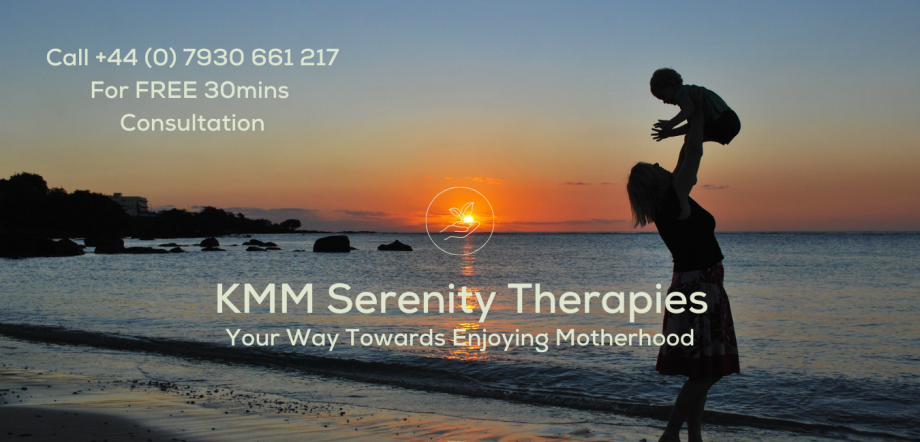Travel or not to travel with kids
You might wonder why I, a therapist, am writing a post about travelling. The answer is simple - because it has such a massive impact on our well being, and it can go either way. Travelling, especially with family or friends can be incredibly enriching, connective and expansive experience, however it can also be terribly stressful, anxiety causing and triggering time. I find that understanding what is behind both outcomes can help us to take action in the right direction and to ensure our travel together is beneficial for all concerned. If you are leading a nomadic life style, you already know of the benefits and likely troubleshooted the down sides to it, this blog post is aimed at people going on holidays or to visit friends and family couple of times a year or so.
The most common causes of stressful travel are lack of preparation and organisation, high or unrealistic expectations and changing moods (yours or your companions’). When we travel with kids the stakes are even higher as we are juggling our own struggles with theirs while hoping that everyone is having the time of their lives. The solution, although an obvious one, can be harder to put in place for some people than others. If you are the happy go lucky traveller that while single could just hop on a train or bus with some cash and passport in their pocket and see where the road takes them, you might find the transition to parental holidays a bit more challenging than someone who is used to writing down their itinerary six months before their departure.
To reduce travel stress, it pays off to plan. It starts with choosing a destination appropriate to the age and interests of all your children as well as your own. Write down the must haves for every person going, bring it together and adjust according to your budget. Consider the length of travel, the impact on naps and sleep patterns, on feeding and toilet visits. If your toddler is fresh out of nappies, 12hr flight might not be the best way forward. Research your destination, learn few phrases if they speak a different language to yours, know what to do in a medical or other emergency, have a first aid kit and enquire about the culture, rules and expectations. Pack lightly, most destinations will have everything you can get at home, no need to bring two packs of nappies, formula or toilet paper (unless your research tells you otherwise), the less you have to carry, the more hands are available to hold onto your little explorers. Leave plenty of time for the journey, so you are not running to catch trains or planes (we all know what happened to Kevin!), everything is on double time with kids as they need toilet each at different times, they need a drink of water when you run out, they argue and run off and drop their passport they insisted on holding, they tantrum and have meltdowns - all this can bet weathered much easier if you are not pressed for time.
I also strongly advise to manage your expectations. When it comes to family holiday, we often have a rosy view of perfect harmony, ice creams, smiles all around and picture perfect memories. Unless your life is like that already, it is highly unlikely that it’ll be like that just because you change location. Your children will be the same children you have daily struggles with, acknowledging that whatever challenges they present at home, will be there with you on your holiday (and often worse) will make it easier to cope with. You can also troubleshoot ahead of time, to minimise their usual triggers - talk to them about what will be happening, role play getting on and travelling on the plane/bus/train etc, show them photos of your destination, let them contribute to the planning and packing and have snacks ready, always.
Travel anxiety is often brought up by the fact that there are so many unknowns and so much is out of our control. We cannot order the weather to be perfect, we can’t stop the transport from getting delayed or even cancelled, we can’t prevent bumps and scrapes, nor can we manage other people’s emotions. All of these things and more are completely valid reasons to feel anxious, but if you’d rather feel calm and empowered, you can use mindfulness to help you keep your Zen.
Start by writing down all that you are worrying about or that makes you feel uncomfortable (bullet points will do), split the list into the problems with potential solutions and those that are not in your control at all. For example, you can plan your journey with time reserves to cater for unexpected delays, take out insurance and have a plan B, but things like weather, cancelled flights etc are there just to be acknowledged. Observe your feelings about the points you put down as out of your control, use a grounding exercise and make peace with the ‘worst case’ scenario. If you are dealing with any kind of trauma or panic attacks, it might be prudent to do this with a therapist. You can also take action by familiarising yourself with rules and procedures, as these are ever changing and knowing what will be happening gives a greater sense of security.
Be aware children might also feel anxious simply because of the change in routine and environment, so make sure you acknowledge any big feelings and problem solve with them ahead of time, to allow them to feel more secure.
You are likely to spend more time in each other’s company than you had done in ages, so any unresolved conflicts, relational trauma and overwhelming feelings might come onto the surface when you finally relax and spend time together. If you are able to ride the initial storm out calmly and make the effort to reconnect through 1-2-1 present and focused contact, it will clear the air and you can enjoy the resulting peace.
Also remember that all feelings are valid and there is no obligation on anyone to feel happy or excited just because they are on holiday, especially if they had no say in the planning of it. We all have a different idea of what a good time means and there is no better/worse or right/wrong way to have fun.
If someone in your travel company is in a funk, support them and let them feel whatever their feel. If you are uncomfortable with other people’s feelings, talk to a therapist or a coach, so you can resolve your triggers and have better, calmer relationships with your loved ones, but especially your children.
It is not all doom and gloom though. Travelling whether at home or abroad is great for the mind, body and soul, especially if you do all the troubleshooting beforehand.
Being in a different environment, literally opens our minds. We are less likely to be on an autopilot and therefore more present, which is the single greatest way to reduce stress. This also allows for more creativity and the ability to experience simple joy in the little things. When we are not running away with the stories in our heads, but rather stay with what is happening around us, our bodies tend to relax and let go off the tensions they have been locked into (one of the reasons many people fall ill or have a back/joint injury couple days into their holidays, so factor that into your planning of activities).
Reduced stress and increased sense of presence in the moment connects us to the deepest parts of ourselves and allows for loving, kind connections with others, which is on what children thrive. When they feel loved, seen and connected, they grow in confidence and independence, great assets for adulthood. Travelling also presents fantastic opportunities for free play, essential part of child’s development that teaches them problem solving skills, team work, math and money management, communication skills and self-reliance amongst other things. They get to see, hear, taste, smell and experience new things, foods and cultures, which is a great way to prevent the build up of negative unconscious biases that tend to happen when we grow up in cultural and social isolation. They learn how the world works and how to function in our society, what better gift can you give them? Memories and experiences are better than toys. Just think of the best things about your childhood. As long as you were not subjected to any abuse, the most pleasant memories are likely of times spent with people you loved and having adventures.
The benefits of travel and exploration are there, no matter how far or near you travel. A day trip to the other side of you town, city or country is just as as good as flying across the oceans. A ride on a bus can be as exciting and educational as taking a ferry across the channel especially when your children are young, as everything is new and an adventure then. No need to break the piggy bank either. Pick destinations that allow for a plenty of free movement for the kids and a lot of quality time together and the rest is just a background noise. You can often have more bonding opportunities while camping on a river bank than launching in an all inclusive beach hotel.
In conclusion, travelling with kids is great, so definitely do it, just don’t go into it blindly, prepare and include them in the decision making or give them a consideration. Once there, make sure you stay present with them, allow space for all their feelings and make sure they get to have plenty of free play. You’ll treasure the memories for ever and so will they.



